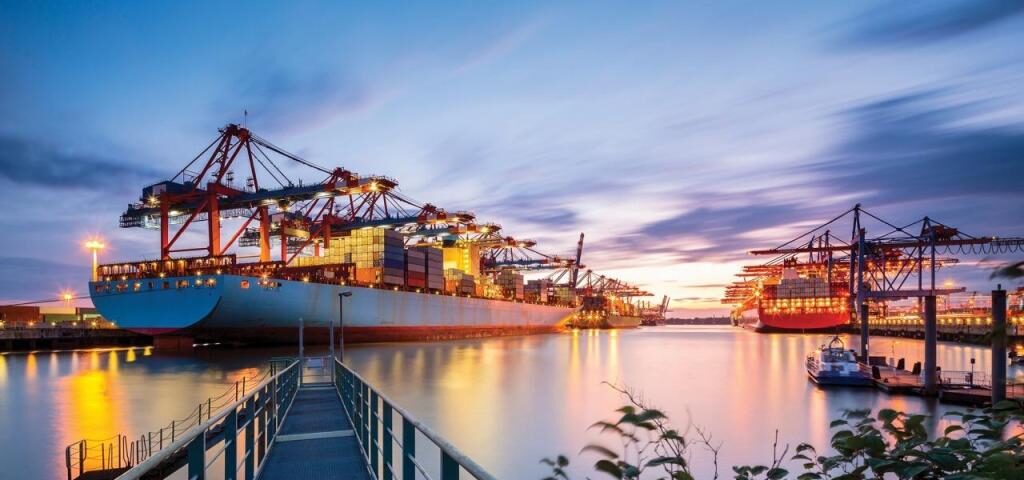With COVID-19 turning port lives upside down, the European Sea Ports Organisation (ESPO), has launched a weekly briefing of its membership throughout Europe on the latest developments – inviting PortEconomics members that have contributed to the life of the association to provide thoughts and reactions. Peter De Langen is the first to contribute, with a column on how the recent might accelerate some trends that were already visible in the port world prior to the crisis.
The return of business as usual after corona?
The Corona virus clearly has a huge global impact, most importantly through affecting the health of millions of people and the loss of human lives. The economic impact is also huge: small businesses suffer, entire sectors (tourism, leisure, non-food retail) are close to a standstill and the stock markets have plummeted, amongst others negatively affecting pensions.
In this column, I would like to share some thoughts on how this crisis may accelerate some trends that were already visible prior to the crisis.
Note that these are just reflections not conclusions based on in-depth analysis. If they turn out wrong feel free to point that out to me 😊.
First, this crisis is likely to accelerate the transition to digital. These weeks we order digitally and work from home through Teams, Skype, Zoom, and other tools. Amazon announced it is hiring over 100.000 workers to cope with the surge in business. In all likelihood, some/most of that additional business will stay once the pandemic is over, accelerating the growth of e-commerce. In the same way, ‘working from home’ may become even more widely accepted now that companies rely on it for weeks.
The transitions underway in (urban) mobility may also be accelerated by the Corona crisis. The huge positive effect on air quality from the drastic reduction in economic activity and especially of mobility is striking, with some studies claiming that the positive effect of the improved air quality on human lives is huge – and larger than the loss of human lives through the Corona crisis. For good reasons we are willing to shut down the economy to stop the virus, but it would be totally illogical to watch the air quality deteriorate once the economy starts up again, knowing this will take more lives and does not require a lockdown to solve it, just a rapid shift to electric mobility. So, I expect the crisis will accelerate -at least in some metropolitan regions- the shift to e-mobility, in ports as well as cities.
Another lasting change may be business air travel. While in many companies it is ‘normal’ to fly in staff for face-to-face meetings, internal ones as well as with suppliers or customers, the shift to digital meetings may accelerate, also in view of increasing awareness of the environmental harm of flying. Will some of the ESPO committees move towards more virtual meetings? Why not give it a try. For academics, where yearly travel to conferences is also normal, Corona may also accelerate the change of a model. For our port & maritime community, the annual event is scheduled in June in Hong Kong. While the organizers announce it will go ahead, it is hard to imagine academics flying in from across the world to attend. So I would not be surprised if we see some kind of virtual attendance being introduced.
The crisis shows the deep international integration of supply chains and the resulting interdependencies
In comparison with flying, the lasting impact of good flows may be minor. The crisis shows the deep international integration of supply chains and the resulting interdependencies: a disruption in Italy quickly affects the entire European economy. Thus, the seamless flow of goods is critical for our economies and ports are vital infrastructures. In some segments, such as food and waste processing, there is a trend towards more local value chains, but overall, it is hard to see the trend of international economic integration being reversed.
A final reflection, specifically for the ‘port managing bodies’ united in ESPO. The port managing bodies have stable revenues from land rents (or concessions) and thus are less vulnerable for a decline in volumes than the companies operating in the port. In addition, they mostly are state-owned and not profit-driven. For these reasons, port stakeholders may demand some sort of package to support the port community. Some ports have already announced measures such as reducing port tariffs.
In my view, the best way for port managing bodies to support port businesses is as done by the Hamburg Port Authority, with AND initiatives that may help companies with liquidity problems AND initiatives that help their transition towards more digital and sustainable operations, like additional discounts for ships that use shore power.
Good luck with your efforts to keep trade flowing. They may go by largely unnoticed, but they are critical.
26 March 2020













